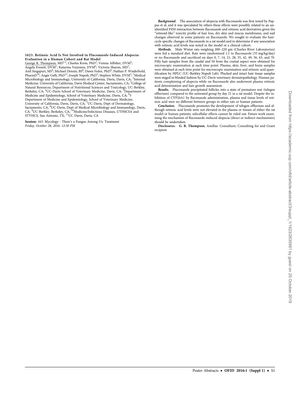Retinoic Acid Is Not Involved in Fluconazole-Induced Alopecia: Evaluation in a Human Cohort and Rat Model
January 2016
in “
Open Forum Infectious Diseases
”

TLDR Retinoic acid is not linked to hair loss from fluconazole use.
The study investigated whether retinoic acid was involved in hair loss (alopecia) caused by fluconazole, an antifungal medication. Researchers used a rat model and a human cohort to assess hair-cycle changes and retinoic acid levels. Male Wistar rats were given fluconazole and compared to a control group, with hair samples and tissue levels of retinoic acid analyzed over time. Human patients on fluconazole who experienced hair loss also had their plasma retinoic acid levels and hair growth assessed. The results showed that fluconazole induced a premature rest phase in hair follicles (telogen effluvium) in rats by day 21, but there was no difference in retinoic acid levels between treated and untreated groups in both rats and humans. The conclusion was that while fluconazole causes telogen effluvium, it does not alter retinoic acid levels in plasma or tissues, suggesting that the mechanism of fluconazole-induced alopecia does not involve retinoic acid. Further research is needed to understand the direct or indirect mechanisms by which fluconazole causes hair loss.




